
The Resilience of Franklin D. Roosevelt
By Storybird

18 Sep, 2023

Franklin Delano Roosevelt, popularly known as FDR, was born on January 30, 1882, into an affluent New York family. His early life was spent surrounded by privilege and wealth, offering him unique opportunities.

Raised by parents who valued education, Roosevelt excelled in his academics. He attended Groton School, an elite preparatory school in Massachusetts, where he learned about public service.

After Groton, Franklin attended Harvard University, studying history. There, he developed a fascination for politics, influenced by his distant cousin, President Theodore Roosevelt.

In 1905, Roosevelt married Eleanor Roosevelt, a socially active and politically conscious woman. Her compassion for the less fortunate had a lasting impact on Franklin's political ideology.

Franklin's political career started as a New York State senator in 1910. He was known for his integrity and ability to relate to the common man.
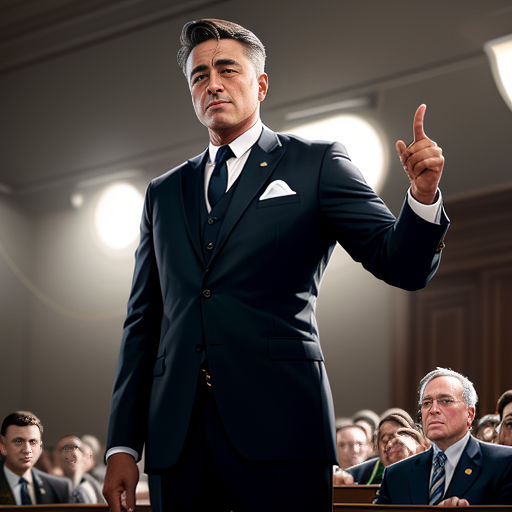
In 1921, Roosevelt's life took a dramatic turn when he was diagnosed with polio. Despite the crippling disease, he remained dedicated to public service.

His struggle with polio shaped him as a leader. He was able to empathize with the difficulties faced by the common man, enhancing his public appeal.

In 1928, Roosevelt was elected Governor of New York. His progressive policies aimed at alleviating the effects of the Great Depression caught the nation's attention.
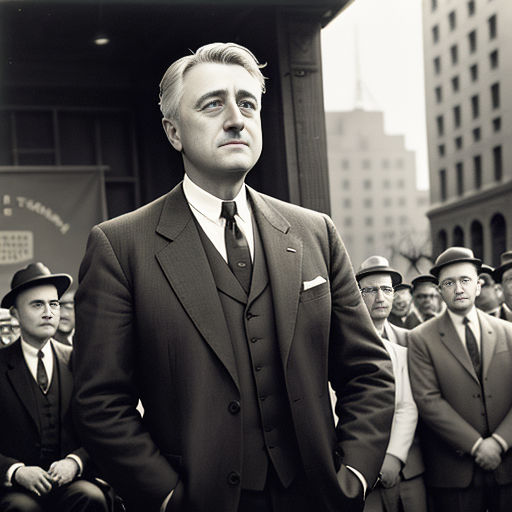
As Governor, he pioneered welfare programs and public infrastructure projects that provided thousands of jobs for the unemployed. His compassion and leadership were admired.

In 1932, the Democrat Franklin Roosevelt was elected as the 32nd president of the United States. His election marked a new era in American politics.
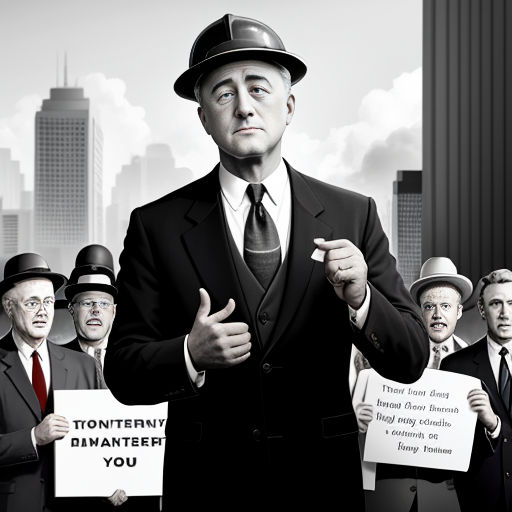
Upon taking office, he implemented policies known as the New Deal. These aimed to stabilize the economy, provide relief to the unemployed and reform the financial system.

FDR's Fireside Chats, delivered through the radio, comforted Americans during the Great Depression. He effectively used this medium to explain his policies directly to the people.

In 1936, Roosevelt was re-elected by a landslide. His policies and leadership had made him a beloved figure among the American public.
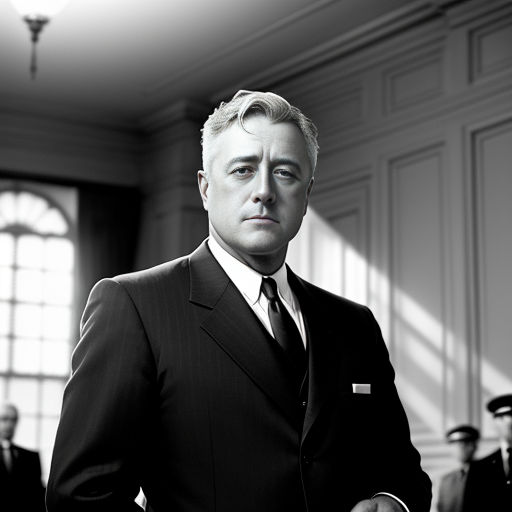
With World War II looming, Roosevelt stood firmly against Hitler's aggression. He made the decisive call to support Britain and France, marking the end of American isolationism.
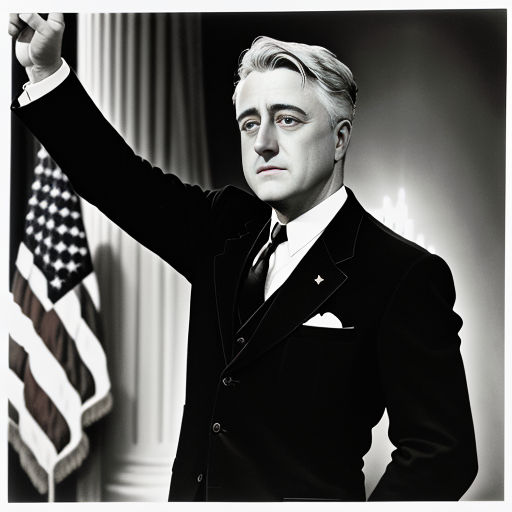
After the devastating attack on Pearl Harbor in 1941, Roosevelt led America into World War II. His leadership during this time was crucial in the fight against fascism.
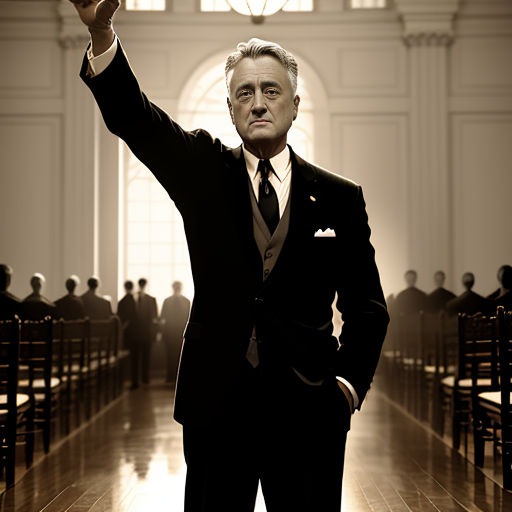
FDR's leadership during the war was characterized by his determination and compassion. He believed in maintaining morale and unity among his people during these trying times.

Roosevelt guided his nation to victory, but tragically, he did not live to see the end of the war. He died on April 12, 1945, shortly into his fourth term as President.

Despite his death, Roosevelt's impact on the US was profound. He had lifted the nation out of despair, led them through war, and reshaped America's role on the global stage.
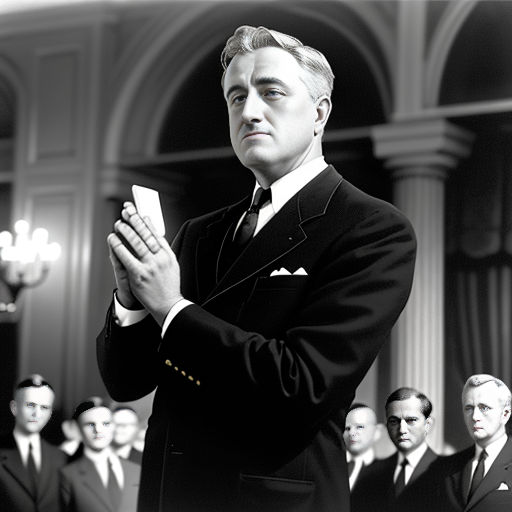
FDR's legacy continues to be felt today. His New Deal policies shaped modern American liberalism, and his leadership during WWII solidified America as a world superpower.
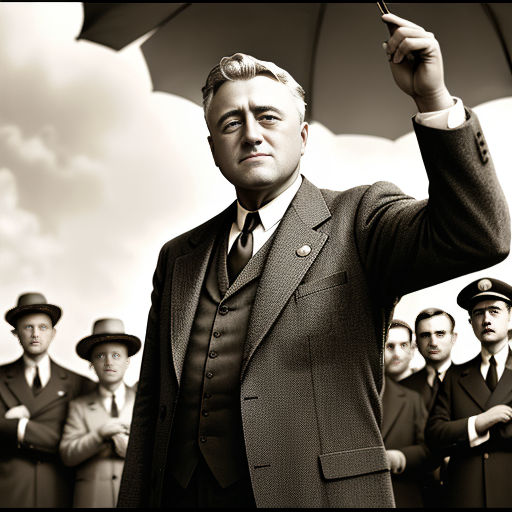
Roosevelt left an indelible mark on American history. His optimistic spirit, perseverance, and commitment to public service continue to inspire generations.
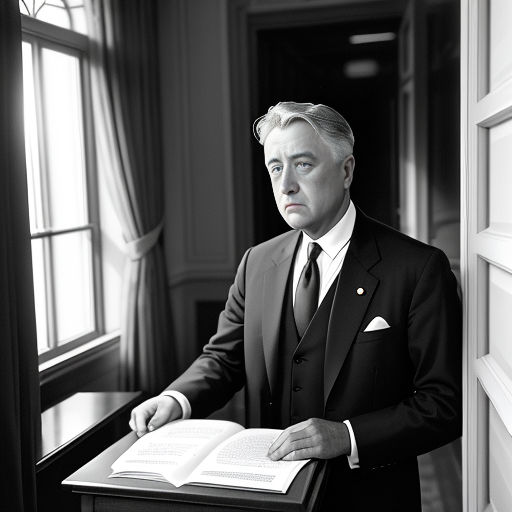
However, FDR's presidency was not without controversy. His decision to intern Japanese Americans during WWII is often cited as a significant stain on his record.
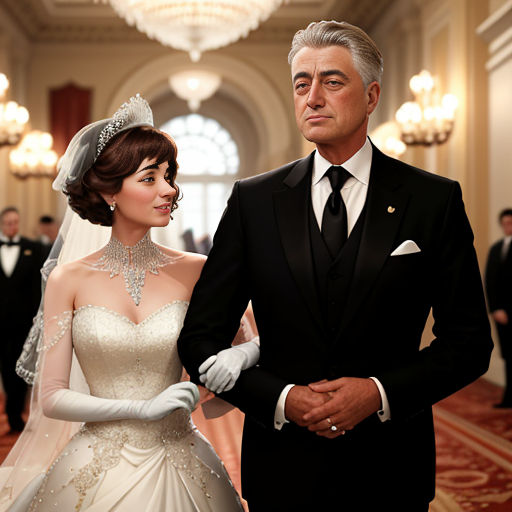
His relationship with Eleanor evolved over the years. Despite marital strains, they maintained a partnership that significantly influenced American politics.
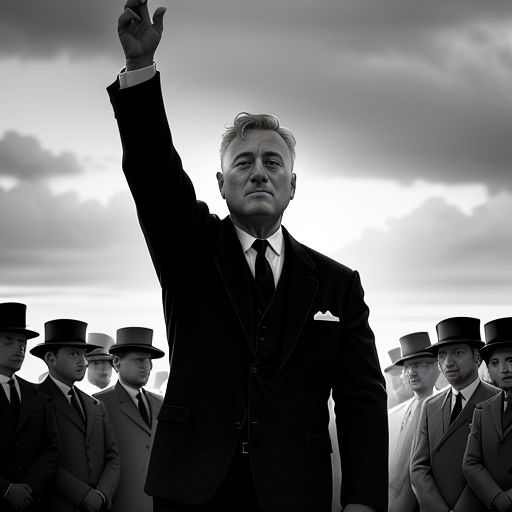
Franklin D. Roosevelt's story is one of resilience and determination. Despite his privileged background, he dedicated his life to serving the people and upholding democratic values.
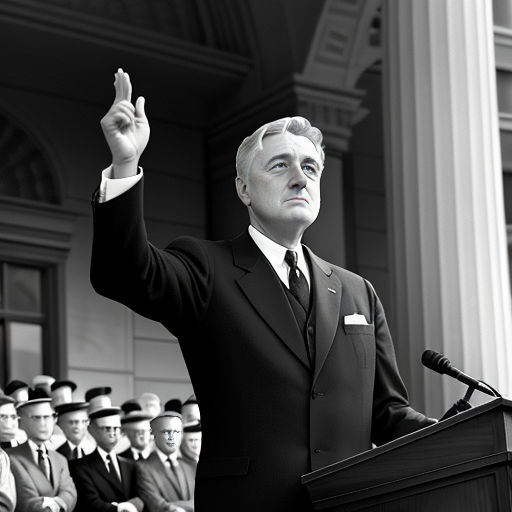
FDR's leadership during the Great Depression and World War II has solidified his position as one of America's greatest Presidents. His innovative solutions to the country's challenges were truly remarkable.

The resilience of Franklin D. Roosevelt serves as a beacon of hope and a testament to the power of the human spirit. His legacy continues to influence and shape the world we live in today.